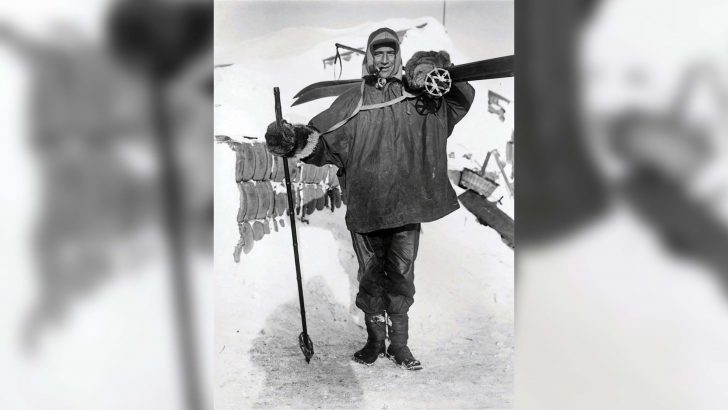An Unsung Hero: Tom Crean – Antarctic Survivor
by Michael Smith (Gill Books, €19.99 / £12.50)
Tom Crean was a hero of the legendary Polar expeditions of the early decades of the twentieth century. The explorer faced nature in all its raw energy in a way later travellers never did.
Crean was born on a small farm near Anascaul in Co. Kerry on 25 February 1877. Before his 16th birthday he enlisted in the Royal Navy. He served in various capacities and on a number of ships before his assignment in 1901 to HMS Ringarooma, a torpedo ship which was deployed around Australia and New Zealand.
Tom volunteered to join Captain Robert F Scott’s British Antarctic Expedition of 1901-4 when the Discovery put in at Port Chalmers in New Zealand to take on provisions. He impressed Scott during that first voyage and on return to port was awarded the Polar Medal, was made a petty officer and was assigned to the HMS Bulwark. He travelled to the Antarctic a second time aboard the Terra Nova with the ill-fated British Antarctic Expedition of 1910-13, working as a member of the support parties preparing supply depots for the polar team. In January 1912 he was on the last supporting party for Scott and his four colleagues as they set out for the last trek to reach the South Pole and so was the last to see them alive. Tom was one of the search party that discovered the bodies of Scott’s party in November 1912.
On their return trek to the base camp Lt Edward Evans (later Admiral Lord Mountevans), one of Tom’s colleagues, took ill and could go no further. Tom went in search of help, travelling for eighteen hours in blizzard conditions. For this heroic feat he was awarded the Albert Medal.
Volunteered
Once more in June 1913 he volunteered to travel to the Antarctic, this time with Sir Ernest Shackleton. He was appointed second mate on the Endurance during the trans-Antarctic expedition of 1914-16. Alongside Shackleton he was one of the crew of the longboat, the James Caird, that sailed from Elephant Island to South Georgia for assistance when the Endurance was trapped, crushed and sunk by ice. It was an epic seventeen-day journey of eight hundred miles. Despite the hardship he endured on this voyage and on the gruelling hike that followed to reach South Georgia, he insisted on returning to Elephant Island with the ship that eventually rescued the remaining crew of the Endurance.
Back in England in November 1916, Tom was attached to the HMS Colleen, a patrol ship in Cove, in March 1917. He later served on board HMS Inflexible, HMS Fox and HMS Hecla. He took part in a number of voyages to northern Russia, when the allies were assisting the White Russians in their attempts to block the Bolshevik take-over of Russia.
Following an accident he was invalided out of the navy in March 1920. Apart from his Albert and Polar medals he was awarded the Naval Long Service, the Good conduct and War Service Medals. Nor was he forgotten by his former comrades. Evans dedicated his book South with Scott (1921) to him and they ensured that the Crean Glacier on South Georgia and Mount Crean were named in his honour.
Retired
Tom had married Eileen Herlihy in September 1917, and when he retired they set up a public house in Anascaul which they later named the ‘South Pole Inn’. His eldest brother, Cornelius, who was a sergeant in the RIC was killed by the IRA in an ambush at Ballinspittal, Co. Cork, in April 1920.
During the revolutionary years Ireland and especially Cos. Cork and Kerry were dangerous places even for retired members of the crown forces. Hence Tom maintained a low profile, seldom referring to his previous naval career. He died from a neglected attack of appendicitis on July 27, 1938, still, as always, wearing a scapular.
In the decades that followed Tom Crean was largely forgotten, in Ireland at least, despite the fact that he spent more time in the Antarctic than Scott or Shackleton who had been lionised by the British public.
In the 1980s, however, this all changed and he has been elevated to the status of a modern Irish icon. His story has now been very much sung in the press, radio, television, films and not least in this splendid biography.


 Tom Crean equipped to face the hazards of the South Pole.
Tom Crean equipped to face the hazards of the South Pole. 